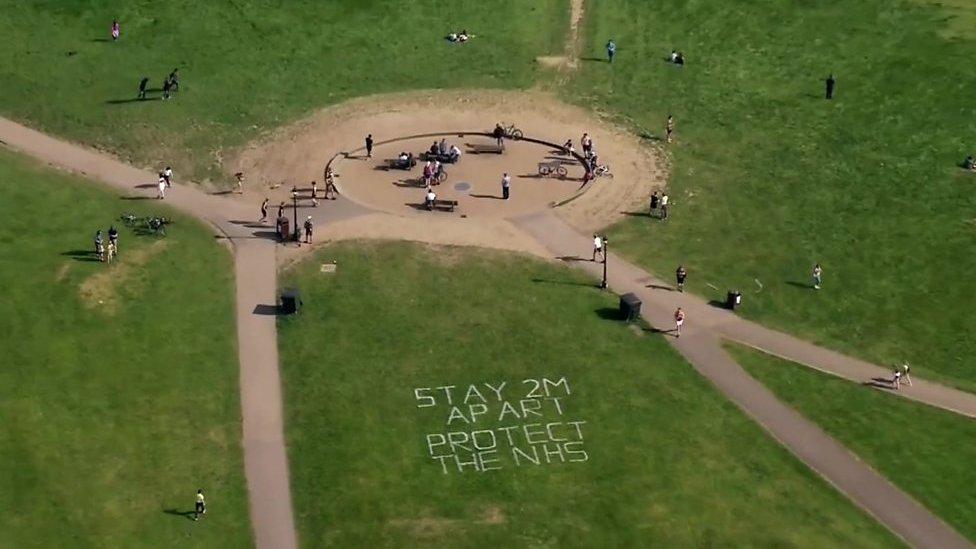Coronavirus: 'Herculean effort' to provide NHS protective gear
- Published
"We're getting the PPE out there but there's clearly a huge task ahead to keep it flowing"
The UK will now ensure daily deliveries of personal protective equipment (PPE) to frontline workers, Health Secretary Matt Hancock has said.
He told the daily coronavirus briefing it had been a "Herculean effort", after criticism the government was not doing enough to protect critical NHS staff.
Officials told the briefing the lockdown was "beginning to pay off" but it was still a "dangerous situation".
The UK recorded another 980 hospital deaths, bringing the total to 8,958.
That death toll, which does not include those who died in care homes or the community, has now exceeded the worst daily figures seen in Italy and Spain.
But England's deputy chief medical officer, Jonathan Van-Tam, warned it was "impossible to say we have peaked", adding that the measures the country was taking with social distancing needed to continue.
The total number of deaths worldwide has now passed 100,000, according to a tally by Johns Hopkins University in the US.
'Precious resource'
BBC health editor Hugh Pym said that some NHS and care workers were saying they were still struggling to get protective equipment and they felt unsafe, despite earlier pledges by the government. He asked if Mr Hancock was acknowledging the previous plans were insufficient.
The health secretary responded that it had been an "enormous challenge", but that 742 million pieces of protective gear had been delivered so far.
"But there's clearly a huge task ahead to keep it flowing and to make sure that those who need it get it," he added.
Mr Hancock also told the briefing that the protective equipment - such as masks, gloves and aprons - must be used only where it was most needed.
"There's enough PPE to go around, but only if it's used in line with our guidance. We need everyone to treat PPE like the precious resource that it is," he said.
He also cautioned against using protective gear outside of health and social care settings, saying handwashing, social distancing and staying at home were the best ways for people to stay safe.
"A front door is better than any face mask," Mr Hancock said.


Those looking after Covid-19 patients are themselves most at risk of catching the virus.
Protective gear and testing are vital not only for protecting staff, but also for minimising the spread of Covid-19.
There have been constant stories of doctors, nurses or care home staff not getting the protection they need.
The government says it has been, in part, a logistical problem. Instead of supplying just over 200 hospital organisations with PPE they are now delivering to 58,000 separate organisations including pharmacies, care homes and GP surgeries.
We are still not at the peak of the outbreak, despite some positive signs in the data.
However, even if we pass the peak and cases start to fall it won't mean all restrictions can be lifted.
The best estimate of the proportion of people infected (and potentially immune in the UK) is 4%. Or to put that another way - more than 63 million are still vulnerable to the infection. So lifting the lockdown could lead to another surge in cases.
Instead the government will have to decide which restrictions to lift, which to keep and what new strategies to introduce in order to suppress the virus.

Mr Hancock said that because of "huge international demand" the UK was having to create a domestic manufacturing industry for protective equipment from scratch, as well as buying from abroad.
He said Burberry had offered to make protective gowns, Rolls-Royce and McLaren were making visors and hand sanitiser was being made by drinks company Diageo and chemicals producer Ineos.
Susan Masters, national director of nursing policy and practice at the Royal College of Nursing, said the amount of PPE being delivered would only be impressive "when nursing staff stop contacting me to say what they need to use wasn't available".
"The calls are still coming through - people are petrified. They have seen colleagues die already."
At the government's briefing, chief nursing officer Ruth May paid tribute to frontline staff who had died after contracting coronavirus.
"The NHS is a family and we feel their loss deeply," she said.
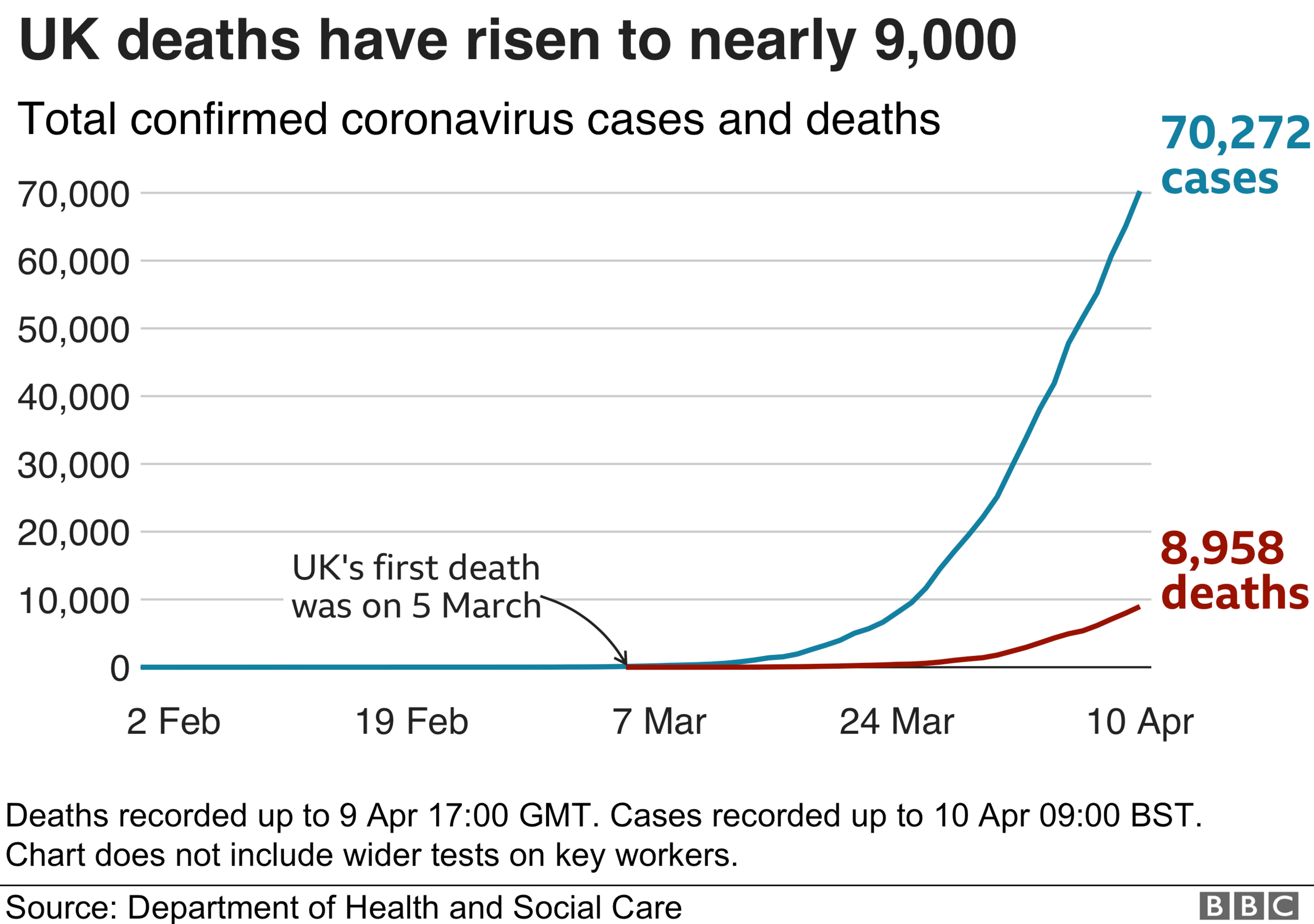
Appealing to the public to continue observing the lockdown rules, she said it was "frustrating" for NHS staff to see people failing to observe the social distancing.
"It is enormously frustrating... there's also still occasions where my colleagues are getting abuse from their neighbours for driving off to work," she said.
"Our nurses, our healthcare staff, need to be able to get to work, it's right and proper they do, but my ask of everybody, please stay at home, save lives and protect my staff."

'UK's death toll among highest in Europe'
By Philippa Roxby, health reporter
There is no hiding from the fact that today's announcement of 980 new UK deaths has surpassed Italy and Spain's worst days during this pandemic.
Italy's highest death toll was 969; Spain's 950.
While these two countries are now seeing daily death figures coming down, the UK's have been closing in on 1,000 for several days - and the true death toll is likely to be higher once deaths not yet reported have been added in.
Yet the NHS has not been overwhelmed in the way that Italy's hospitals appeared to be, particularly in the north.
The message is that the NHS has spare capacity and intensive care beds not yet used, thanks to planning and everyone's efforts to stay at home.
There was even a plea from health officials that anyone with serious and worrying health problems of any kind should contact the NHS as usual.
The hope is now that the UK's social distancing measures will have the same effect as Italy and Spain's lockdowns, and deaths will start to fall - not just slow down - in the weeks to come.

Mr Hancock was challenged on a report in Health Service Journal, external that he had been failing to observe social distancing rules himself, holding regular video calls in his office surrounded by between 10 and 20 colleagues.
Senior NHS leaders expressed alarm that the health secretary was providing a bad example, the report said.
Mr Hancock insisted that he followed social distancing rules on the occasions when he had to come into the office.
It comes after Housing Secretary Robert Jenrick defended his travel moves following reports he flouted the government's lockdown rules.

A SIMPLE GUIDE: How do I protect myself?
AVOIDING CONTACT: The rules on self-isolation and exercise
HOPE AND LOSS: Your coronavirus stories
LOOK-UP TOOL: Check cases in your area

Mr Hancock also told the briefing 15 drive-through testing centres had been opened across the UK to enable all frontline NHS and social care staff to be screened for the virus.
The 19,100 tests carried out in the last day still fall well short of the health secretary's target of 100,000 a day by the end of April.
But he said new "Lighthouse mega-labs" were on track in Cheshire and Glasgow, and another has opened in Milton Keynes. Pharmaceutical giants AstraZeneca and GSK were opening an additional testing facility in Cambridge, he added.
The government also announced new Nightingale temporary hospitals to be opened, with 460 beds in Washington, Tyne and Wear, and a smaller facility in Exeter.
It brings the total number to seven, with units in London, Birmingham, Manchester, Bristol and Harrogate as well.
In other developments:
Boris Johnson has been able to take short walks, in between resting, after his move out of intensive care, No 10 said
A doctor who appealed for PPE has died after contracting coronavirus
The Foreign Office has chartered 12 more flights to bring more than 3,000 stranded Britons back from India from Monday
Ireland's lockdown measures will be extended for three weeks until 5 May, Taoiseach (Irish Prime Minister) Leo Varadkar has confirmed
Universities across the UK have warned some institutions will go bust because of the outbreak
Online sales of Easter eggs are surging as UK consumers turn to the internet during the lockdown

How have you been affected by the issues relating to coronavirus? Share your experiences by emailing haveyoursay@bbc.co.uk, external.
Please include a contact number if you are willing to speak to a BBC journalist. You can also contact us in the following ways:
WhatsApp: +44 7756 165803
Tweet: @BBC_HaveYourSay, external
Send pictures/video to yourpics@bbc.co.uk, external
Please read our terms & conditions and privacy policy
- Published10 April 2020
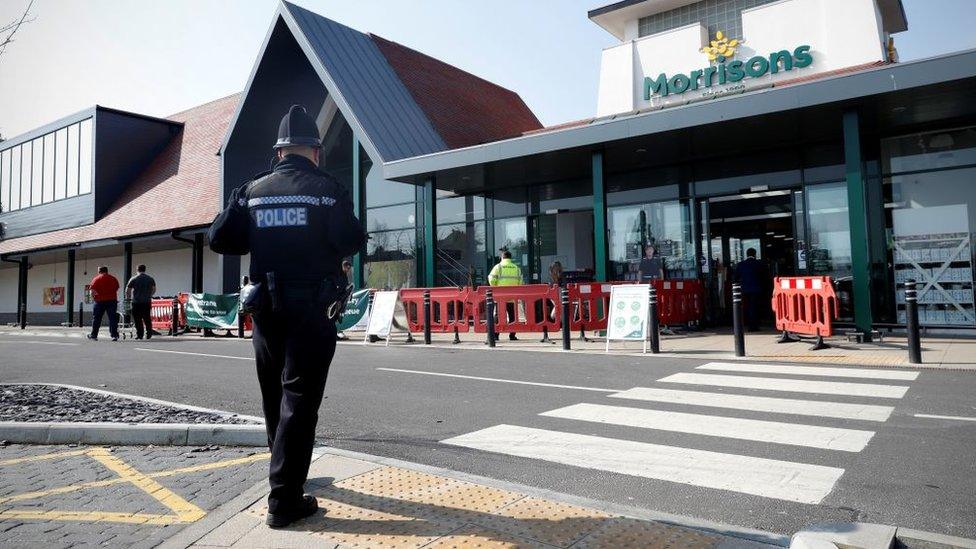
- Published10 April 2020
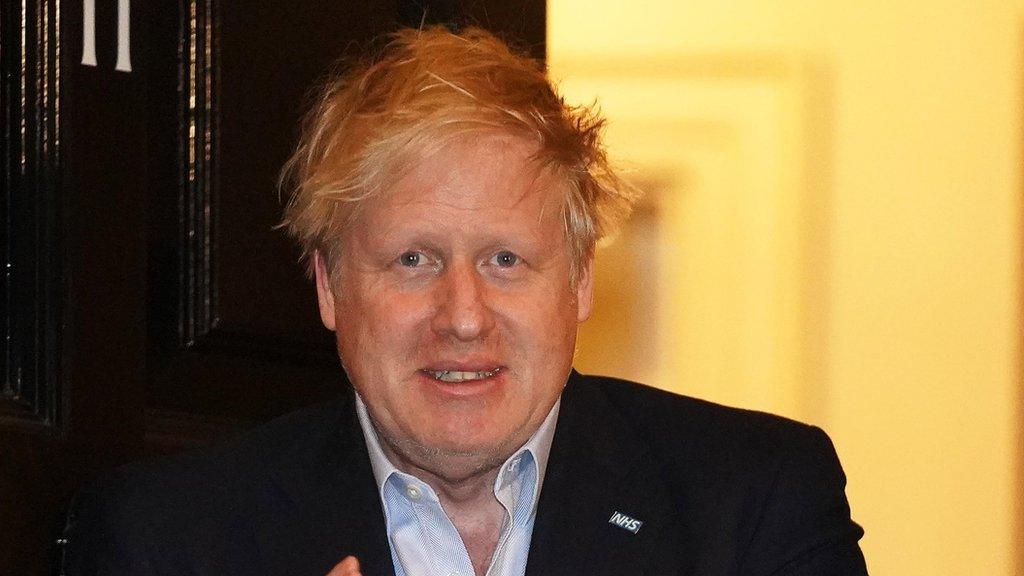
- Published9 April 2020
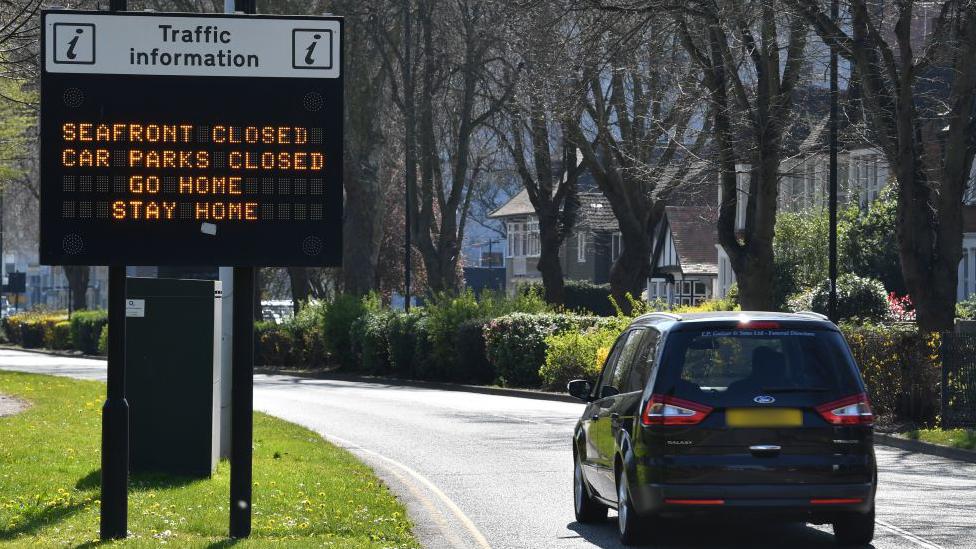
- Published10 April 2020
